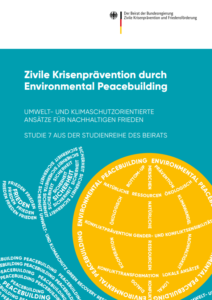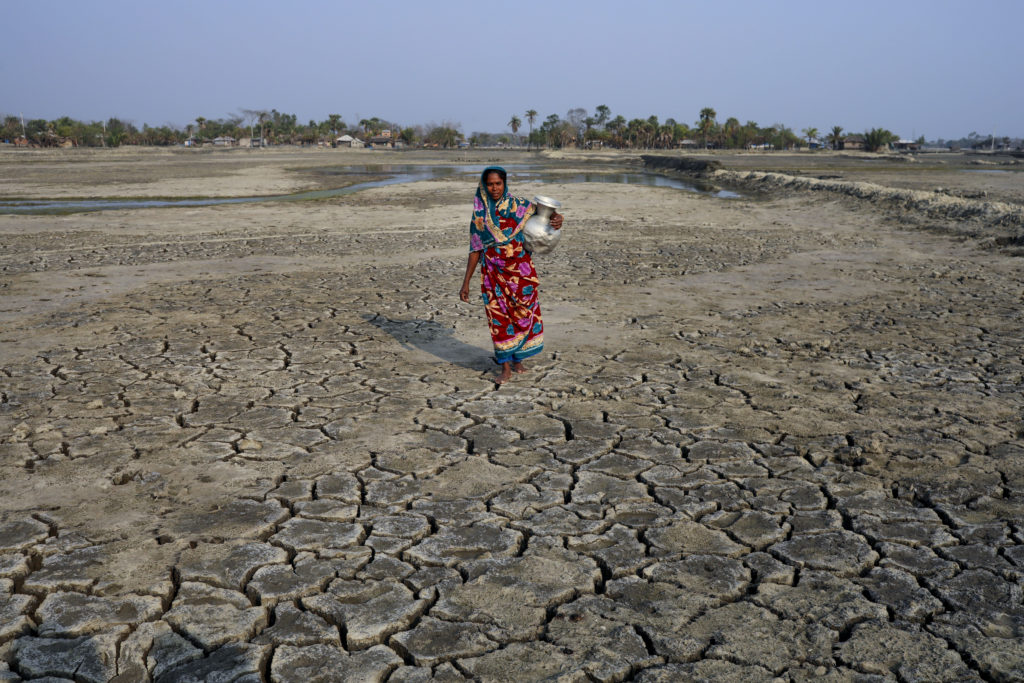Civilian Crisis Prevention through Environmental Peacebuilding
Environmental and Climate Protection-ortiented approaches for sustainable peace
This study examines the environmental peacebuilding approach and its potential to promote peace and stability in various conflict regions. The basic idea of environmental peacebuilding is that environmental problems, resource scarcity or the effects of climate change can be used as a field of action for dialog and as a reason for cooperation between actors in order to avoid or defuse violent conflicts and promote long-term peace. The targeted integration of environmental and climate issues into peace work can defuse violent conflicts under certain conditions, promote long-term peace structures and strengthen resilience in affected communities.
The study is based on a review of the scientific literature and a large number of international case studies to illustrate the diverse approaches and effects of environmental peacebuilding. The projects analyzed include cooperation initiatives such as EcoPeace, small hydropower plants in the Balkans, environmental peacebuilding measures in West Africa, the Camel Caravan in Kenya, Tara Bandu in Timor-Leste and international efforts to strengthen the role of women in Afghanistan’s energy sector. The case studies cover a wide range of regions and contexts. In addition, environmental destruction in the context of the Russian war of aggression in Ukraine is presented as a current field of action. The study also highlights the importance of gender and intersectionality in the field of environmental peacebuilding for inclusive and long-term peace solutions. In addition, climate finance is discussed as a lever for the development of environmental peacebuilding structures, particularly with regard to the newly emerging fund for loss and damage.
The results and recommendations of the study show that environmental peacebuilding can successfully make a positive contribution to crisis prevention and help to defuse conflicts, especially if it is tailored to the needs and experiences of local communities. Sustainable environmental practices and the integration of environmental aspects into peace work not only promote the resolution of immediate conflicts, but also have a positive impact on social stability. It is clear that participatory and locally anchored approaches are particularly effective. The study recommends greater support for environmental peacebuilding initiatives that are integrative and context-specific. Climate and environmental aspects should be consistently linked with issues of social justice and gender aspects in order to maximize the potential for peace in the long term. The German Federal Government and international funding institutions should strategically support these projects as important components of civil crisis prevention and peacebuilding, particularly in the context of the further development of the Federal Government’s guidelines “Preventing Crises, Resolving Conflicts, Promoting Peace”. The success of environmental peacebuilding requires compliance with the temperature targets of the Paris Agreement. Only by radically reducing emissions can the scope for cooperation be created that is needed to deal with the already unavoidable consequences of climate change.


